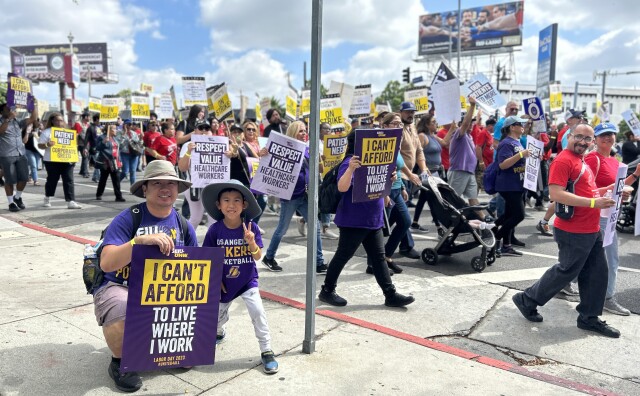Even if you don't live or work near a major fire, you can still be affected by smoke particles in the air. So, what's in that smoke, and how much should you worry about it?
Depending on the fire, the smoke can be made up of various substances, including carbon dioxide, carbon monoxide, water vapor, particulate matter, organic chemicals, nitrogen oxides, and more. Exposure to smoke can cause a range of health effects, from eye and lung irritation to asthma and premature death.
Those especially sensitive to smoke include:
- People with asthma
- People with cardiovascular diseases
- People with respiratory diseases
- The elderly
- Young children
- Pregnant women
Particulate matter is the main public health threat during short-term exposure to wildfire smoke, so it's crucial to protect yourself.
"Really it's about common sense," said Philip Fine of the South Coast Air Quality Management District. "If you can see the smoke, if you can smell the smoke, you can tell when the particulate matter levels are really high. If you can do that, you should exercise caution."
Here are some tips on how to stay safe if there's wildfire smoke in your area:
Stay indoors
Thinking of going outside? Don't. It's best to stay inside with the air conditioner on. And you're going to want filtered air. Many evaporative cooling systems, aka "swamp coolers," don't filter the air.
Once you turn on the cool, filtered air, keep the doors and windows closed to keep the unhealthy air outside. You're also going to want to avoid vigorous activity -- anything that makes you breathe deeply.
Do not use any indoor or outdoor wood-burning appliances or fireplaces. And when smoke subsides, you should air out your home to clear any polluted air that might be trapped inside.
But what if you're stuck in a car or driving through areas of smoke? Same deal. Close the windows and doors and run your car's air conditioner. AQMD says that carbon dioxide levels can spike quickly in newer cars if vents and windows are closed and the circulation setting is on, so crack the windows once you're in there for a while to prevent grogginess.
Get protected
The best thing to do is to seek shelter. Ordinarily, if you must be outside, the advice would be to wear an N95 or P100 respirator mask. But these are the same kind health officials have asked the public to avoid so that they can be reserved for frontline workers and first responders. And given the ongoing COVID-19 pandemic, they may not be easy to come by, anyway.
N95 masks filter out debris in the air and keep most of the smoke particles from damaging your lungs. Experts recommend that anyone in a fire-prone area keep such a mask in an emergency kit. We tested some other masks, and they didn't hold up as well.
Until we know more, our best advice is still to stay indoors.
Check the air
Smoke isn't the only thing that can make air quality bad.
The South Coast Air Quality Management District tracks smoke alerts, but also ozone and other pollutants that make the air unhealthy to breathe. You can sign up for alerts from their website or check the air quality forecast on their interactive map.
Megan Larson and Brian Frank also contributed to this story.
This story was originally published on Nov. 9, 2018.







